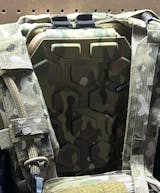Concealed Carry: The Importance of Asking “What If?”

Concealed Carry: The Importance of Asking “What If?”
The following article is by one of our longtime customers, Gunnar Anderson. Enjoy!
- Justin
///START GUEST ARTICLE///
If you are a responsible gun owner and routinely carry in public, do you ask yourself the question, “What if?” This question can help you avoid the need to use deadly force and keep you out of jail. Having the latest generation Glock, rotating your carry ammunition and magazines, regularly cleaning your firearm and practicing under all conditions (e.g., strong hand, weak hand, low-light, different positions, etc.) are all important aspects of responsibly carrying a firearm, but you need to practice your decision-making, too. Enter the benefits of asking, “What if?”
Asking “what if?” will help you take appropriate action if you ever find yourself in a situation where deadly force is necessary. That question is why both government and private organizations have COOP plans (Continuity of Operations Plans) and white papers. They are a means to address complicated situations by planning in advance - think terrorist attacks, riots/“mostly peaceful protests,” hurricanes, floods, extended utility outages, etc. Asking “what if?” is something you already do for situations far more mundane than a gunfight. What if that car veers into my lane? What if dinner takes longer than expected and I cannot get home before the babysitter needs to leave? What if I have an unexpected bill this month? What if my car with over 200,000 miles breaks down on my cross-country roadtrip?
Applying this thinking to concealed carry - what am I going to do if that stranger tries to rob me? What if he tries to rob someone else? What am I going to do if I see kids trying to break into my car? What am I going to do if I see someone attacking a stranger? I am not advocating that you spend your waking hours in condition red as described by Col. Jeff Cooper (USMC). What I am recommending is that you spend time now thinking about under what circumstances you are willing to use deadly force. This is not a question to ponder during an emergency or a moment of crisis. And as you consider when you would use deadly force, remember the warnings from my previous article - you will find yourself in handcuffs, you may be charged with any number of crimes and you may be sued in civil court. If you employ deadly force, you need to be sure that your reasons are worth whatever consequences may await you.
Gunnar Anderson is a former EMT, rescue diver, and prosecutor who now trains and advises both law enforcement and emergency management. Nothing in this article should be construed as legal advice - it is meant to encourage discussion and advance planning.
///END GUEST ARTICLE///






Laissez un commentaire